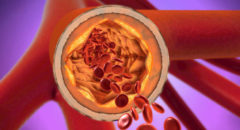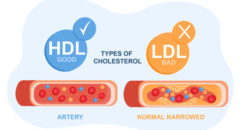
If you are concerned about your heart health, eating at least two servings of fish each week may help lower your risk of heart disease.
For many years, the American Heart Association has advised consumers to eat unsaturated fat-rich fish at least twice a week. Omega-3 fatty acids are the unsaturated fats found in fish. The omega-3 fatty acids and other nutrients found in fish may boost heart health and lower the chance of dying from heart disease.
Read on to learn how to manage these issues by eating a healthy quantity of fish.
RELATED: Lemon & Brown Sugar Salmon [VIDEO]
What Exactly Are Omega-3 Fatty Acids, and Why Are They Beneficial to Your Heart?
Omega-3 fatty acids are unsaturated fatty acids that have been shown to lessen inflammation throughout the body. Inflammation in the body can cause blood vessel damage, leading to heart disease and strokes.
Omega-3 fatty acids may help heart health in the following ways:
- Triglyceride reduction
- Lowering blood pressure
- Controlling blood clotting
- Reducing the risk of strokes and heart failure
- Getting rid of irregular heartbeats
Eating at least two meals of fish every week, preferably fish high in omega-3 fatty acids appears to lower the risk of heart disease, especially sudden cardiac death.
Most individuals should consume at least 8 ounces of omega-3-rich fish each week. A serving size is 4 ounces, which is approximately the size of a deck of cards.
Pay attention to how fish is cooked in order to get the maximum health advantages. Grilling, broiling, or baking fish, for example, is a healthier alternative than deep-frying.
It is worth noting that wild salmon has more nutrients than farmed salmon.
Farmed salmon are fed an artificial pellet-based diet rather than their natural diet of crustaceans, flies, and smaller fish that they would








